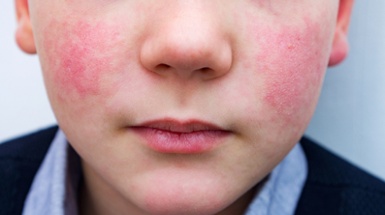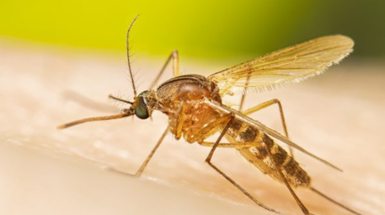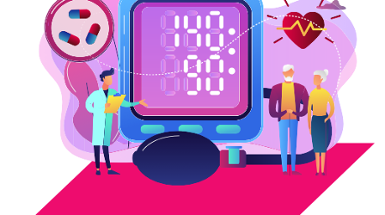Chickenpox and Shingles
What is chickenpox?
What are the symptoms of chickenpox?
- An itchy rash of blisters
- Fever
- Headache
- Feeling tired
Symptoms usually last about a week. In some cases, chickenpox can cause serious problems. Some people who have been vaccinated against chickenpox can still get the disease, called breakthrough chickenpox. However, they usually have milder symptoms with fewer or no blisters (or just red spots), a mild or no fever, and are sick for a shorter period of time than people who are not vaccinated. If you or your children are diagnosed with chickenpox, you should isolate at home until one week after the rash began or until the lesions become dry and crusted, if they haven't in one week's time.
Questions
If you have any other questions about Chickenpox, or you are a provider who needs to report a case of Chickenpox, you are welcome to reach out to our Communicable Disease Unit by calling 513-357-7462.
Resources
Chickenpox (Varicella) Prevention and Treatment | CDC
CDC Fact Sheet for providers: Varicella (Chickenpox) (cdc.gov)
PHOTOS: Chickenpox Photos | CDC
What is shingles?
Shingles is caused by varicella zoster virus (VZV), the same virus that causes chickenpox. After a person recovers from chickenpox, the virus stays dormant (inactive) in the body. This virus can reactivate years later, causing shingles.
People with Shingles should do the following to prevent spreading VZV to others:
- Cover the rash
- Avoid touching or scratching the rash
- Wash your hands often for at least 20 seconds
- Avoid contact with the following people until your rash scabs over
- Pregnant women who never had chickenpox or chickenpox vaccine
- Premature or low birth weight infants
- People who are immunocompromised (have a weakened immune system) such as people taking immunosuppressive medications (that lower the body’s normal immune response) or undergoing cancer treatment, organ transplant recipients, and people with human immunodeficiency virus (HIV) infection
Prevention
Talk to your healthcare provider if you aren't sure if you need a Chickenpox or Shingles vaccination. If you do not have a healthcare provider, you can schedule a vaccination at one of Cincinnati Health Department's Community Health Centers by calling 513-357-7320. Visit Cincinnati Health Department Primary Health Care - Health (cincinnati-oh.gov) for more information about center locations.
Questions
If you have any other questions about Chickenpox, or you are a provider who needs to report a case of Chickenpox, you are welcome to reach out to our Communicable Disease Unit by calling 513-357-7462.
Resources
About Shingles (Herpes Zoster) | CDC
Fact sheet: Get the new shingles vaccine if you are 50 or older | Herpes Zoster | CDC
PHOTOS: Photos of Shingles (Herpes Zoster) | CDC
Latest News
-

- Jun. 13
- Bats and Rabies





